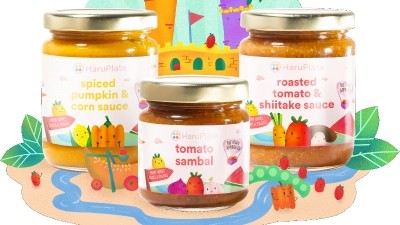Perception problems: Plant-based innovation in Asia needs to find right format to strengthen health benefits correlation – expert panel

This was the conclusion reached by a panel of experts that congregated for a plant-based focused discussion in Thailand, which comprised of CP Foods Director of Open Innovation Peemdej Utsahajit, Thai Coconut CMO Napatsorn Chinpikiyo and Proveg International Managing Director Asia Shirley Lu.
The panel generally agreed that the plant-based industry has seen a slowdown since experiencing massive growth during the COVID-19 pandemic period, attributing this to the novelty factor having worn off.
“The growth of plant-based in this region really softened after 2022, mostly because the novelty wore off and consumers found the taste and cost to not be satisfactory,” Lu told the floor.
“That said the opportunities are still huge, and the trend is that brands are moving to B2B channels to cater to huge volume categories such as dumplings, and many are also doing hybrid plant-based and animal protein products as well as RTE meals.
“The big change now is that companies are mostly focusing on the flexitarian market as opposed to solely vegans and vegetarians, and flexitarians make up 98% of the market.”
Utsahajit concurred that the novelty factor has worn off, but stressed that the industry still has a lot more work to do in order to really see success.
“The plant-based sector tried the novelty factor but it failed to impress consumers of meat products from various perspectives, so realistically nothing is going to change moving forward until product formats can be improved,” he said.
“Asia actually has an advantage in that there are less headwinds here than in many other markets, as meat is something of a sacred subject linked to political and liberal views, but it has now been proven that the sector needs much more than just launching many products to market for it to take off.
“What is truly needed is more R&D in this space to improve the core offering, which at the moment can satisfy vegetarians who are willing to make that concession, but not so much flexitarians or meat eaters.
“So the only way to progress is to knuckle down and find that R&D which will push the industry forward in order to break the stagnation.”
Chinpikiyo agreed on the requirement for better, deeper R&D in the plant-based sector as a whole, adding that this is similar in the plant-based dairy category.
“Plant-based dairy products are also in need of more R&D to improve further – in Thai Coconut, we face a unique challenge in Asia where consumers are very familiar with coconut milk as a culinary ingredient but not as a drink,” she said.
“So coconut milk as milk is essentially a new drink to Asia, and there is a lot of misconception especially in Thailand that this is high in bad fats which is not true – and there needs to be more research published to help dispel this.”
Healthier perceptions
The argument for better product formats was augmented by the fact that many plant-based products, particularly meat alternatives, in the market today often suffer from negative consumer perception due to the processing involved.
“We believe that communication is really very important here when it comes to processing – even bottled water is processed,” Lu said.
“Some processing is generally required in order to keep the integrity and safety of the products.
“The emphasis really should not be on just plant-based for these items, but also on taste, ingredients, nutrition and functional value in order for consumers to understand these better.”
Utsahajit highlighted that it is not general processing that has given plant-based products a bad rap, but mostly the end-formats that these items end up in, which would be considered unhealthy even in general scenarios.
“Plant-based products on their own are fundamentally healthier than animal protein when compared head-to-head, but the issue is that most products on the market today are processed in a way that is not helping consumer perception,” he added.
“Many of these are deep fried or fast foods, which are generally thought of as unhealthy, so the need here is really to improve the products by linking these with healthier cooking formats, such as grilled, steamed and so on.
“The best quick win by doing this would be to remove the association of plant-based as an unhealthy food choice, and in the long run if we could also look upstream to fortify and improve the nutritional profiles of plant-based products, there is even more opportunity here to win over consumer perceptions.”


















